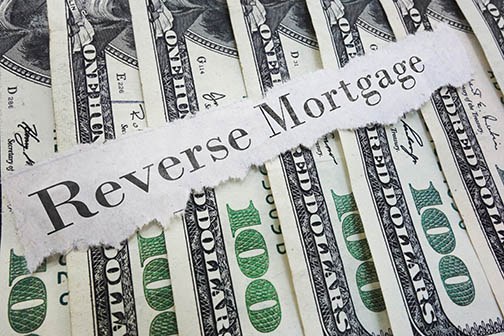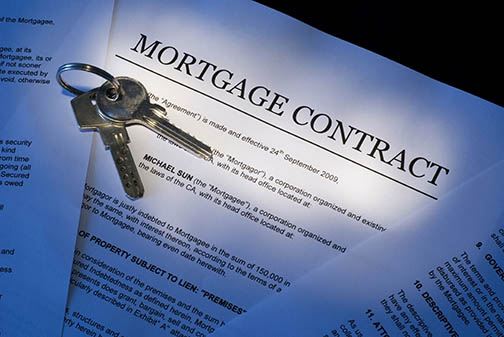 There are a variety of mortgage products out there that serve the needs of different homeowners, but for the uninitiated it can be hard to know what will work best for them. If you happen to be close to retirement and are looking at options that will be more financially beneficial for you, here are the details on a reverse mortgage and how this product can work for you.
There are a variety of mortgage products out there that serve the needs of different homeowners, but for the uninitiated it can be hard to know what will work best for them. If you happen to be close to retirement and are looking at options that will be more financially beneficial for you, here are the details on a reverse mortgage and how this product can work for you.
The Details On A Reverse Mortgage
A reverse mortgage may be one of the lesser-known products available on the market, but it was created in 2009 as the Home Equity Conversion Mortgage for Purchase (HECM) following the 2008 recession. While this type of mortgage is only available to homeowners who are 62 or older, it offers a way for people to tap into the equity of their home so that they are not required to pay monthly mortgage payments. There are limitations imposed on this product, but this can be useful for many homeowners.
What’s Required To Apply?
In order to utilize this mortgage product, the homeowner must have paid off their property entirely or have a significant amount of equity in their current home. As people who want to use a reverse mortgage will have to go through a credit check, they will have to be able to prove that they have the ability to pay for all the fees associated with home ownership. This can include common expenses like insurance, property tax and any other applicable charges that come with a monthly mortgage payment.
How You Can Use It
A reverse mortgage can be confusing to understand, but for those who want to receive monthly payments, get a lump sum payment from their equity or even access a line of credit, it can be a means of tapping into additional funds. While this means that the overall loan balance of the mortgage can increase over time due to interest and insurance not being paid consistently, these expenses will be taken care of once the owner has passed away when the property can be sold or the loan balance is paid.
A reverse mortgage can be a beneficial product for many homeowners, but it’s important to be aware of the associated costs involved to determine if this product is beneficial for you.
 There was a time when a higher percentage of people were married before they committed to buying a home together, but it’s a lot more common to co-habit and invest in a home together. If you’re considering the commitment of a mortgage without being married, here are some things to be aware of before you start searching the market.
There was a time when a higher percentage of people were married before they committed to buying a home together, but it’s a lot more common to co-habit and invest in a home together. If you’re considering the commitment of a mortgage without being married, here are some things to be aware of before you start searching the market. If you have a good credit history and are prepared to invest in a home, you may be feeling pretty confident about the mortgage process. However, it’s important to be aware that there are things that can have a negative impact on your application. Whether you’ve just submitted your documents or are getting close to it, here are some things you may want to avoid.
If you have a good credit history and are prepared to invest in a home, you may be feeling pretty confident about the mortgage process. However, it’s important to be aware that there are things that can have a negative impact on your application. Whether you’ve just submitted your documents or are getting close to it, here are some things you may want to avoid. There are a variety of factors that are involved in getting your mortgage approved, but few things will have more of an impact than your FICO score and the credit history that goes along with it. Instead of leaving your score up to chance when submitting your application, here are a few ways that you can boost your financial wellbeing and leave your credit score better off than it was before.
There are a variety of factors that are involved in getting your mortgage approved, but few things will have more of an impact than your FICO score and the credit history that goes along with it. Instead of leaving your score up to chance when submitting your application, here are a few ways that you can boost your financial wellbeing and leave your credit score better off than it was before. There’s a lot of flexibility and personal freedom associated with self-employment that can be a great benefit to your lifestyle and your pocketbook. However, because of the somewhat unpredictable nature of self-employment, it can make acquiring a mortgage a little more difficult. If you’ve recently become self-employed or have been in the game for a while, here are some things you may want to consider before submitting your mortgage application.
There’s a lot of flexibility and personal freedom associated with self-employment that can be a great benefit to your lifestyle and your pocketbook. However, because of the somewhat unpredictable nature of self-employment, it can make acquiring a mortgage a little more difficult. If you’ve recently become self-employed or have been in the game for a while, here are some things you may want to consider before submitting your mortgage application. Most homeowners look at their monthly mortgage payment as their largest cost per month, and something they must do to maintain a good credit history. However, you may have heard of bi-weekly mortgage payments and their ability to lower your debt load and help you pay off your mortgage more quickly. If you’re wondering if bi-weekly payments are too good to be true, here’s some information worth consideration.
Most homeowners look at their monthly mortgage payment as their largest cost per month, and something they must do to maintain a good credit history. However, you may have heard of bi-weekly mortgage payments and their ability to lower your debt load and help you pay off your mortgage more quickly. If you’re wondering if bi-weekly payments are too good to be true, here’s some information worth consideration.